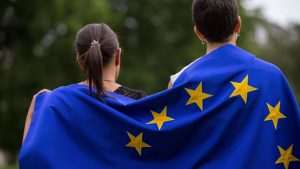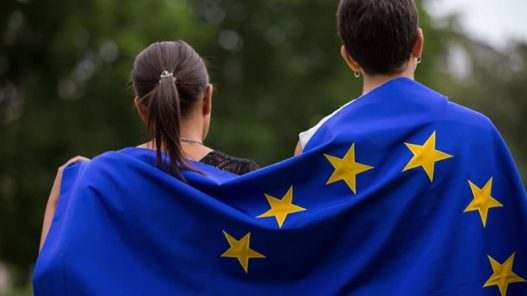
EUROPE DAY: 74 YEARS OF EUROPEAN INTEGRATION
By Ane Barcos / Aquí Europa
Every May 9 marks the anniversary of the Schuman Declaration, uttered by one of the founding fathers of the European Union (EU) who, with his proposal to safeguard world peace through creative efforts, advocated an alliance for the joint production of steel and coal among six countries, thus eliminating the possibility of war among them.
The European Coal and Steel Community was the first of a series of supranational institutions that would evolve into what we know today as the European Union.
In his statement on May 9, 1950, the then French Foreign Minister, Robert Schuman, spoke of the need for creative efforts equal to the dangers threatening world peace. Schuman stressed the importance of a united Europe to maintain peaceful relations and proposed the creation of a European Coal and Steel Community, uniting the production of these crucial materials for the war industry.
The ECSC, initially composed of France, West Germany, Italy, the Netherlands, Belgium and Luxembourg, represented the first step towards the European Union, a vision of political cooperation between nations that eliminated the possibility of war between them.
A year later, in 1951, the treaty that laid the foundations of the European community was signed in Paris, coming into force in 1952. Subsequently, the six founding countries ratified this agreement in the 1958 Treaty of Rome. Later, in 1985, the Single European Act was enacted, establishing a single common market.
Finally, it was on February 7, 1992, with the Maastricht Treaty that it was renamed the European Union, integrating 12 countries and laying the foundations for economic and monetary union.
74 years after the historic Schuman Declaration, political leaders continue to find inspiration in the ideas and legacy of the then French Foreign Minister. This document left a legacy of quotes that still resonate, such as that “world peace cannot be safeguarded without creative efforts commensurate with the dangers that threaten it.”
This maxim takes on particular relevance in the current geopolitical context. Last Monday, the head of European diplomacy, Josep Borrell, called for “being more creative” in exploring new ways of providing military assistance to Ukraine.
The European Union’s capacity for creative efforts will come under scrutiny next June, when the results and turnout in the European elections will be revealed.
The Spring Eurobarometer 2024 already advanced some data, revealing that almost three quarters of citizens consider that the EU’s actions have an impact on their daily lives, and a large majority believe that their country benefits from membership in this union of nations.
In the case of Spain, 71% indicated that the EU has an impact on their daily lives, and 77% stated that Spain has benefited from being a member of the EU.
In terms of current and future challenges, European citizens showed that they prioritized the fight against poverty and social exclusion, followed by public health and support for the economy and job creation. The importance of EU defense and security has increased, especially in the wake of Russia’s war against Ukraine.
In Spain, public health, the fight against poverty and support for the economy are prominent issues. In addition, agricultural policy is an important issue for Spaniards, according to 31% of respondents.
Looking to the future, EU citizens consider defense and security, along with energy and agricultural issues, to be priorities for strengthening the EU’s position globally.
9 MAY, AN EU-WIDE PUBLIC HOLIDAY?
This was the proposal of the citizens’ MEP, Renew, in the European Parliament, Maite Pagazaurtundúa, in 2019. Since, according to the rules, the Parliament can ask the Commission to submit a proposal if it considers an EU legislative act necessary to implement the Treaties.
Pagazaurtundúa was rapporteur for a report proposing a roadmap for the creation of an EU citizenship statute that won broad support in the European Parliament with 459 votes in favor, 170 against and 49 abstentions. The report proposed institutionalizing Europe Day, May 9, as a public holiday in all Member States.
However, the proposal failed. Despite support in Parliament, the Commission did not follow up. Pagazaurtundúa then addressed his questions directly to the Community Executive: “Do you plan to publish an initiative that would make it possible to comply with this proposal and suggest that a European citizenship statute be drawn up that would compile and update specific rights and freedoms to citizens?”
European Commissioner for Justice Didier Reynders replied that “the Commission has already taken steps to make EU citizenship more tangible for citizens and to make further progress on the rights attached to it.”
————
This article was originally published in Aquí Europa, with whose permission we reproduce it.


